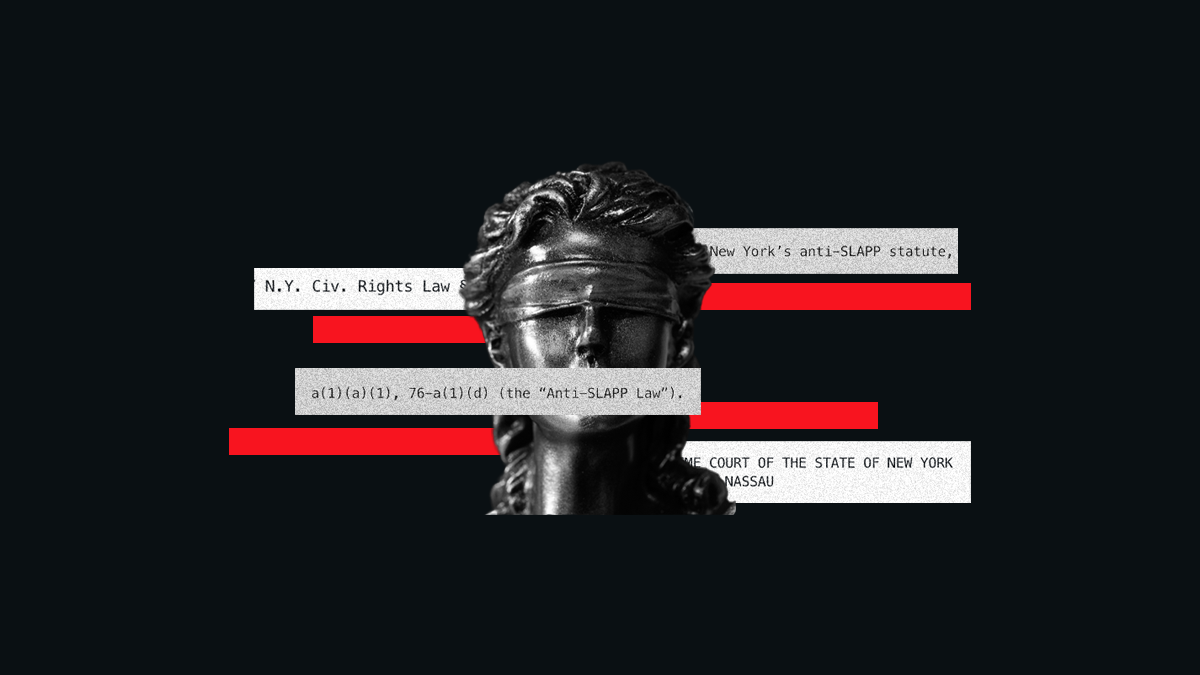Don’t SLAPP Me: NWLC Leads Amicus Brief in Support of New York Student Survivor Against Retaliatory Defamation Suit

In 2023, Jessica Todaro, a Binghamton University student, posted on the social media app YikYak that her classmate and ex-boyfriend Miles Ventura was a “r*pist,” had “r*p[ed] [her] regularly,” and that “people need to know about this.” As she explained to a friend at the time, she made the posts to “warn other girls [sic] about him.”
Now, Ventura is suing her for defamation.
This lawsuit is a SLAPP, or a strategic lawsuit against public participation. SLAPPs are meritless suits filed to intimidate people, including sexual assault survivors, from speaking out about misconduct or to retaliate against them for having spoken out. SLAPP filers don’t generally expect to win their cases, but that’s not the point—SLAPPs are still effective in silencing people from speaking out. This is because it can take a tremendous amount of time, money, and emotional effort for anyone, including survivors, to defend against a SLAPP.
Jessica lives in the state of New York, which has an anti-SLAPP law that’s supposed to protect her and anyone else who speaks about any issue that is not a “purely private” matter, including public allegations of sexual assault. Unfortunately, a New York trial court refused to use the state’s anti-SLAPP law to dismiss Ventura’s SLAPP against Jessica. Incredibly, the court held that Jessica’s allegations of rape were “private allegations” that did not fall into the sphere of “public interest” protected by the state’s anti-SLAPP law.
So, on March 31, 2025, the National Women’s Law Center filed an amicus brief on behalf of 36 gender justice organizations with a New York appellate court in Ventura v. Todaro in support of Jessica. Our brief explains:
1. Jessica’s posts are clearly protected by New York’s anti-SLAPP law.
Under New York’s anti-SLAPP law, all issues that are not “purely private” are considered issues of public interest. Other New York courts have repeatedly held that public allegations of sexual assault are matters of public interest. Jessica’s public-facing Yik Yak posts—made explicitly to warn others about rape—were clearly within the scope of the law’s protections. After all, if bringing public attention to rape doesn’t count as in the public interest, what does?
2. Sexual assault survivors often face retaliation, including being SLAPPed with a defamation lawsuit.
Sexual assault is extremely prevalent in every part of our society. On U.S. college campuses, one in four women, one in 15 men, and one in five transgender and nonbinary students have experienced sexual assault since enrolling. But survivors overwhelmingly feel unsafe and unsupported, which is why most of them stay silent. For example, only one in eight women survivors in college report their assault to their school.
Fear of retaliation is one of the biggest reasons why survivors do not come forward. In fact, 23% of student survivors are threatened with a defamation suit, and defamation suits are the third most common type of retaliation faced by survivors in the workplace. These SLAPPs are often excessively costly and psychologically retraumatizing to defend—even if they are completely meritless.
3. New York explicitly amended its anti-SLAPP laws in 2020 to protect survivors.
When New York’s anti-SLAPP law was updated in 2020, the lead sponsor, Senator Brad Hoylman, proclaimed: “This bill is going protect survivors.” He continued: “Survivors must be able to speak without threat of impoverishment and intimidation.”
The New York legislature agreed, calling the prior law a “broken system” that had led to “survivors of sexual abuse and others being dragged through the courts on retaliatory legal challenges solely intended to silence them.”
Since then, numerous New York courts have held that the anti-SLAPP law protects survivors. Yet the trial court in Jessica’s case ignored this crucial legislative history when holding that the law did not protect her.
In summary, the trial court’s decision is dangerous and wrong. If the appellate court allows this decision to stand, it will be easier for sexual assailants to weaponize the New York courts against their victims, and survivors in New York will continue to be silenced—despite the clear protections of the state’s anti-SLAPP law. That’s why we urged the appellate court to reverse the trial court’s decision and dismiss this case against Jessica.
* * * * *
If you have experienced sex harassment, gender-based violence, or other sex discrimination at school, in the workplace, or when receiving health care, you can contact NWLC’s Legal Network for Gender Equity to get information about your rights and get a free initial legal consultation from attorneys who practice in your state.
If you are a survivor and are thinking about speaking out (or already have spoken out) and are worried about facing retaliation, including being targeted with a SLAPP, you can learn more about your rights, risks, and options using NWLC’s and Know Your IX’s toolkit: Survivors Speaking Out: A Toolkit About Defamation Lawsuits and Other Retaliation by and for People Speaking Out About Sex-Based Harassment.




